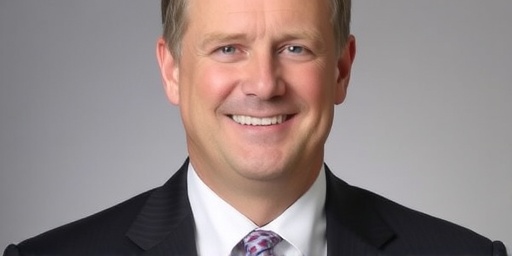In a stunning development for Vermont health services, Brattleboro Memorial Hospital announced on Wednesday that CEO Christopher Dougherty will not return following his extended leave of absence. The decision comes as the facility battles a severe budget shortfall exceeding $4.2 million and faces heightened scrutiny from state regulators over operational and compliance lapses.
The hospital’s board of trustees issued a brief statement confirming the CEO departure, thanking Dougherty for his nearly six years of service while emphasizing the need for fresh Hospital leadership to navigate ongoing crises. “This transition allows Brattleboro Memorial to refocus on stabilizing our finances and enhancing patient care amid challenging circumstances,” said Board Chair Elena Vasquez in the release.
Dougherty’s Tenure Ends Abruptly After Months-Long Leave
Christopher Dougherty, who assumed the helm of Brattleboro Memorial in early 2018, stepped away on administrative leave in late May amid whispers of internal discord. Sources close to the hospital, speaking on condition of anonymity, revealed that his departure was precipitated by a combination of financial pressures and regulatory red flags that had been mounting for over a year.
During Dougherty’s leadership, the 61-bed facility in southeastern Vermont managed to expand telehealth services and launch a new behavioral health unit, serving over 12,000 emergency visits annually. However, critics point to stagnating revenues and rising costs as key failures. “Chris brought vision, but execution faltered under the weight of post-pandemic realities,” noted Dr. Miriam Hale, a local physician who has privileges at the hospital.
The board has appointed Interim CEO Dr. Raj Patel, a veteran administrator from nearby Dartmouth-Hitchcock Medical Center, to steer the ship. Patel’s immediate priorities include cost-cutting measures and engaging with regulators, according to an internal memo obtained by this outlet.
$4.2 Million Budget Shortfall Exposed by Internal Audit
At the heart of the turmoil is a staggering budget shortfall that an independent audit pegged at $4.2 million for fiscal year 2023—up from a $1.8 million deficit the previous year. The audit, conducted by Boston-based firm HealthMetrics Advisors, highlighted several culprits: declining reimbursements from Medicare and Medicaid, which account for 65% of the hospital’s revenue; staffing shortages driving up overtime expenses by 28%; and supply chain disruptions inflating costs for essentials like pharmaceuticals and medical devices.
Brattleboro Memorial‘s operating expenses surged to $112 million last year, while revenues hovered at $107.8 million. Rural hospitals like this one, serving Windham County’s 45,000 residents, are particularly vulnerable. Vermont’s healthcare landscape has seen similar strains, with statewide uncompensated care costs reaching $250 million in 2022, per the Vermont Department of Health.
- Key Financial Red Flags:
- Patient volume down 15% from pre-COVID peaks due to delayed elective procedures.
- Staff turnover rate of 22%, higher than the national average of 18% for community hospitals.
- Outstanding accounts receivable ballooned to $18 million, signaling billing inefficiencies.
“We’re not alone—rural Vermont health providers are squeezed by inflation and payer mix shifts,” explained Sarah Kline, spokesperson for the Vermont Association of Hospitals and Health Centers. “But Brattleboro’s shortfall demands urgent intervention.”
State Regulators Launch Probe into Compliance Violations
Compounding the financial woes, the Vermont Department of Health has escalated oversight of Brattleboro Memorial, issuing a formal corrective action plan in July after identifying deficiencies in several areas. Inspectors flagged issues including inadequate nurse-to-patient ratios in the ICU, delayed reporting of adverse events, and non-compliance with federal billing standards under the 21st Century Cures Act.
The scrutiny stems from a surprise inspection in April, where regulators documented 14 violations, including improper documentation of opioid prescriptions—a hot-button issue in Vermont, where overdose deaths hit a record 195 last year. “Patient safety is non-negotiable,” stated Health Commissioner Mark Levine in a statement. “We’ve mandated monthly progress reports and could impose fines or operational restrictions if improvements lag.”
This isn’t the hospital’s first brush with regulators. In 2021, it paid a $50,000 settlement for HIPAA privacy breaches affecting 300 patients. The current probe has staff on edge, with union representatives from the Vermont Nurses Association calling for transparency. “Hospital leadership changes are welcome, but we need resources to fix these systemic issues,” said union rep Tom Reilly.
Community and Stakeholder Reactions to Leadership Vacuum
The CEO departure has elicited a wave of responses from stakeholders. Local lawmakers, including State Rep. Kathleen James (D-Brattleboro), voiced concerns in a letter to the board: “Brattleboro Memorial is the lifeline for our community. This shortfall threatens access to care, especially for low-income families.”
Patients echoed these sentiments. “I’ve relied on this hospital for my diabetes management—any instability scares me,” shared resident Linda Torres at a community forum last week. Business leaders, via the Brattleboro Area Chamber of Commerce, pledged support, announcing a $250,000 fundraising drive to bolster emergency services.
Healthcare analysts offer a broader view. “This mirrors a national trend: 30% of rural hospitals at risk of closure by 2025, per the Center for Healthcare Quality and Payment Reform,” said expert Dr. Elena Ruiz. “Vermont’s Green Mountain Care Board must step up with targeted grants.”
Internally, morale is mixed. A staff survey leaked to reporters showed 42% approval for Dougherty’s performance, with praise for innovation but criticism over communication during the financial crunch.
Interim Strategies and Long-Term Revival Roadmap Emerge
Looking ahead, Brattleboro Memorial outlined a multi-pronged recovery plan. Interim CEO Patel announced immediate steps: a hiring freeze on non-essential roles, renegotiation of vendor contracts to save $1.5 million annually, and a partnership with the University of Vermont Medical Center for shared services in radiology and lab testing.
Longer-term, the hospital eyes federal Rural Health Network grants and participation in Vermont’s All-Payer ACO model to stabilize reimbursements. “We’re pursuing $2 million in state aid through the Vermont Health Access Plan,” Patel told reporters Thursday.
The board is launching a national search for a permanent CEO, prioritizing candidates with turnaround experience in rural settings. Community input sessions are scheduled for next month, signaling a commitment to transparency.
For Vermont health overall, this saga underscores vulnerabilities in the state’s 14 acute care hospitals, many operating on thin margins. With Medicaid expansion pressures and an aging population—Vermont’s median age is 42.8, highest in the U.S.—innovative Hospital leadership will be crucial. As Brattleboro Memorial stabilizes, it could serve as a model or cautionary tale for peers statewide.
Developments will be monitored closely, with regulators set to review progress in October. Stakeholders remain cautiously optimistic that decisive action can avert deeper crisis.








